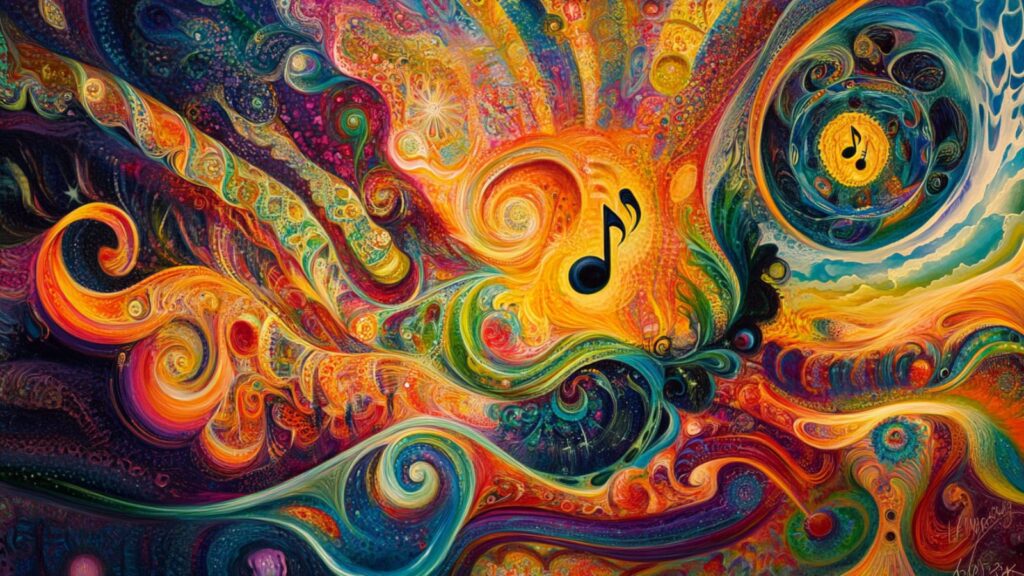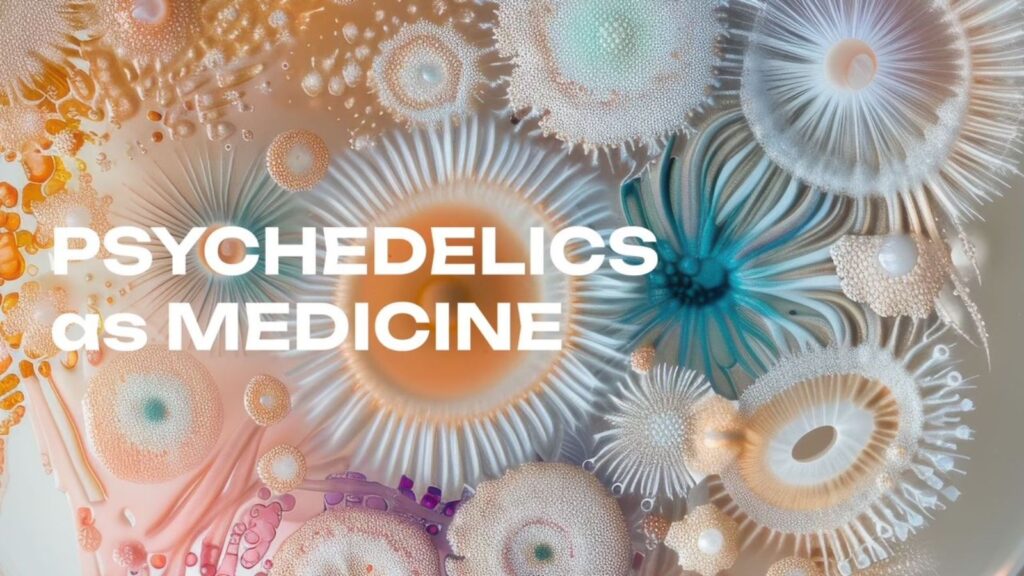I once heard Werner Erhard, the controversial founder of the "est training" in the early 70s, speaking at Swami Muktananda's ashram in South Fallsburg, New York. Knowing he was addressing a "spiritual" crowd, he said, "I know you all know that you're not your bodies, right?" General assent. "Well, I bet if I took you over to the door and slammed it on your thumb, you would think that you were your body pretty damn quickly." What I took from that — and I don't pretend to know what he meant — was that even if something could very well be ultimately true (that we are not our bodies), what's actually important is what's real to us, where we are actually living. And from where most of us reside most of the time, we are our bodies; when the idea that we're not is held merely as a belief system, it leaves us prey to something else Werner used to say: "The truth believed is a lie."
With that in mind, one of the central truths his training put forth was concerning one's responsibility for…well, for everything. It is perhaps easier to grasp that one is responsible for one's experience of everything — how one reacts, responds to, and interprets events. Two children growing up with the same abusive, alcoholic father will often draw vastly different conclusions from the same situation, and thus will have radically different experiences for which they are, in fact, responsible for creating, albeit perhaps unconsciously. Erhard was suggesting we could bring awareness to the fact that we are not merely helpless victims of the buffeting winds of circumstance, but that our own personal stance in relation to circumstances literally alters our experience of those same circumstances, such that it can be said we create our own reality. What you see is what you get. And how you see determines what you see.
For example, if I walk down the street with an urgent need to pee, I will filter out nearly everything else in front of me as I scan for the nearest restroom. Were I craving sweets, I'd primarily notice the bakeries and candy stores and miss a lot of other sensory input. In a similar vein, when the six blind men touch the elephant in the well-known parable, the one touching the trunk "sees" it as a long, narrow tube while the one stroking its flank "knows" it is a wall. Both are pieces of the truth, determined by their limited points of view, but neither sees the whole picture. So in that sense, our unique way of seeing life, determined by our needs and desires and where we're standing, so to speak — our stance — creates what we see.
Thus we have choice and power not over what's actually out there or what happens to us, but rather, how we see and interpret what's out there and what happens. Since the tendency with ideas like this is to test them at their extremes, an example would be those very rare Holocaust victims who consciously, even joyfully in a few cases, entered the gas chambers still praising God (as recounted in Hasidic Tales of the Holocaust by Yaffa Eliach.) Despite the obviously unthinkable conditions of the Nazi camps, there was still, for some at least, an element of choice in how they responded. Viktor Frankl's landmark work, Man's Search for Meaning, makes the same point.
But this idea of "creating your reality" can be one of those truths which, when believed, becomes a lie. That is, both within the est world as well as when the idea began to leak into the New Age culture at large, it was adopted in such a way as to sometimes imply that not only, for example, did the Jews create their own way of experiencing or responding to the Holocaust, but since we're responsible for everything, they created the Holocaust itself. And that's the philosophical leap that got many critics of est rightfully upset. Responsibility, Erhard said, "begins with the acknowledgment that one is at cause in the matter, whether one experiences that as true or not." That is where we can get into trouble, because such an idea, even if ultimately and philosophically true, can be turned into a lie when used to essentially blame the victims and let oneself off the hook for everyone else's suffering, since they are responsible for creating it.
The idea can then further devolve to what former est trainer Stewart Emery (who eventually defected) called the Super-Source Syndrome, in which people would complete the training and run up to him afterward shouting with glee, "I am God! I am God!" and he would respond by saying, "Great! Here's a fish and a bottle of wine, now go feed the hungry masses." Before very long, it became acceptable in New Age circles to say things like, "I created a thunderstorm today," or, "I created having cancer," or when the responsibility got transferred over to a guru instead, it became, "Baba gave me dysentery."
For many of us, the very real evolution of our awareness does in fact move, over time, from the unexamined assumption of a victim mentality that blames others, life itself or God for everything that happens to us and around us, to the astounding and liberating insight that we are responsible for our experience of reality. That recognition puts us back in the driver's seat, piloting our own craft and no longer at the mercy of circumstance. That we had been constantly crashing into things was simply because we weren't steering; what was steering was our automatic, unexamined, interpretive stance in relationship to reality, and we kept hitting the wall, clueless. So it is an empowering and transformational shift to take responsibility in that way.
But as even Erhard and est were clear about, one doesn't get transformed once and breath a sigh of relief because it's finally over and done with. Rather, one gets transformed and recognizes that the rest of one's life will be a process of continuous transformation, breaking through the confines of one box, feeling a newfound freedom, but eventually discovering one has simply entered a much roomier box. In fact, consciousness itself can be seen as an infinite game of Chinese boxes, each new level containing all that came before, as well as contained in the one that remains unknown and unseen, lying in wait for us to bump up against its edges. Therefore, one doesn't "reach enlightenment," like a final state or resting place; rather, one recognizes that our beings are engaged in an ongoing process of enlighten-ing. (As in the title of one of Buckminster Fuller's books, I Seem to Be A Verb.) How boring and unimaginative reality would be if there weren't always vaster unknown vistas to explore.
"I create my reality" is a truth that can take someone out of the stifling prison of helplessness and victim-hood, but when it is adopted as a belief system, it becomes a lie, simply a new box to eventually break out of, into…what might the next box be? Werner sometimes referred to it as "what we don't know that we don't know." We can't know that "the earth is flat" is a limited view until we find ourselves one step further out, looking back at the globe. But from within the obvious "truth" of the flat-Earth worldview, no such greater context could possibly exist, for we don't even know that we don't know about it. It doesn't even exist as a possibility for us, and hence Werner often spoke of his work as "creating the possibility of possibility."
But if I were to speculate about what might await us should we discover that "I create my reality" is really just another box to move through, it would have something to do with the Buddhist notion of interdependent arising. Thich Nat Hanh has a well-known teaching about this he calls "interbeing":
"If you are a poet, you will see clearly that there is a cloud floating in this sheet of paper. Without a cloud, there will be no rain; without rain, the trees cannot grow; and without trees, we cannot make paper. The cloud is essential for the paper to exist. If the cloud is not here, the sheet of paper cannot be here either. So we can say that the cloud and the paper inter-are. "Interbeing" is a word that is not in the dictionary yet, but if we combine the prefix "inter-" with the verb "to be," we have a new verb, inter-be.
"If we look into this sheet of paper even more deeply, we can see the sunshine in it. Without sunshine, the forest cannot grow. In fact, nothing can grow without sunshine. And so, we know that the sunshine is also in this sheet of paper. The paper and the sunshine inter-are. And if we continue to look, we can see the logger who cut the tree and brought it to the mill to be transformed into paper. And we see wheat. We know the logger cannot exist without his daily bread, and therefore the wheat that became his bread is also in this sheet of paper. The logger's father and mother are in it too. When we look in this way, we see that without all of these things, this sheet of paper cannot exist." (From Peace is in Every Step.)
If all phenomena arise together in a mutually interdependent web of cause and effect, then we are not Super Source after all. You may be, as Werner said, "God in your universe," and so am I. But who's creating my reality when I share it with countless sentient beings who are likewise God in our shared universe? From this standpoint, reality is seen as a co-creation of everyone, everything, everywhere, since beginningless time, interdependently co-creating the Great Mystery in which we all find ourselves.
When people have the epiphany that "I am God! I created it all!" it stems from a glimpse of one's true nature, one's primordial identity as undifferentiated Awareness itself, in which it's not so much that one created it all, but that one is identical to it all. But there is a confusion of levels when the "I," which is the name we have given to our separate, egoic self, tries to sneak in the backdoor of undifferentiated Awareness and join the party, for there is no party as long as that "I" is there! So again, "I am God" is rooted in a glimpse or experience of a great truth that has been converted into a lie through the wily ambitions of the personal self not wanting to be left behind when the unified field takes over! Werner once asked, "Have you ever noticed that whenever you have a problem, you're around?" Similarly, whenever we have a moment of true flow, of being "in the zone," we're never there! Because the two cannot coexist. Logically, "I" cannot be present for the direct experience of "no-I." The Dalai Lama titled one of his books, A Flash of Lightning in the Dark of Night, pointing to that moment we've all known when the mind suddenly drops without effort and there remains only one's direct experience of what's occurring. Similarly, as we zip down a steep, snowy slope on our skis, there is only room in consciousness for the experience itself; as soon as "I" separates itself out in order to comment on what's happening, we fall, both from our skis and from Grace.
May we all conspire to co-create a reality that allows each of us to know who we are as mutually interdependent beings, arising within the great beauty and harmony of this mysterious backdrop of the unified field, the zone of Grace.
Image by Shermeee, courtesy of Creative Commons license.













